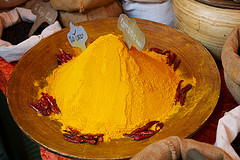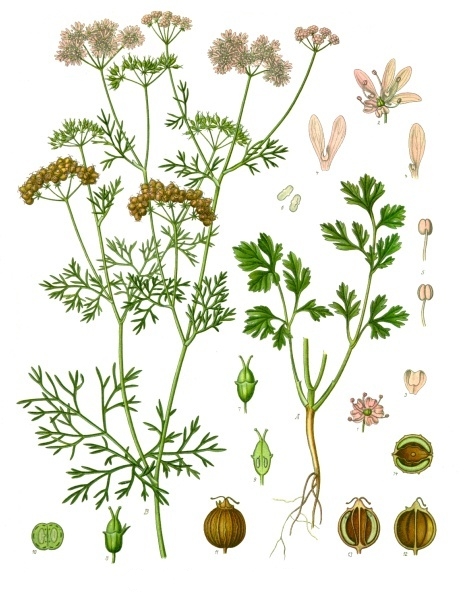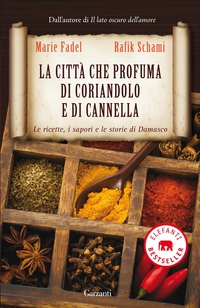Today I propose to you an interview with Cristina, a journalist, who participated in the Online Course of Aromatherapy and Perfumery on Spices– She tells us about her experience, and her discoveries “in the spicy world”.
– Dear Cristina, how did you start your journey before arriving at my scented Course on Spices?
I almost knew spices by name and mostly as flavorings, and did not know that essential oils of spices existed. Now I have started to use them, beginning with a little fear because I am hypersensitive to everything and I always need to find “my” doses. One day, walking around the house, I felt the scent of cinnamon everywhere, as if I had put into the diffuser. And I was thinking of mixing the powdered spices to see what fragrance they recall together, before working on essential oils. To my own surprise, I feel I need not be hasty in creating perfumes, and I need to let spices “talk to me” for a while.
– What questions did you have before signin up, and what do you think about the course, now that you have followed the entire training?
The online courses are often considered inferior to presential courses, but in reality I have become increasingly convinced that the online course is not the little brother of the coursein presence. Of course, the olfactory experience can be transmitted online only intuitively, and the energy and synergy of the group is always stimulating. But doing an online course – especially enjoying the lessons, as I did, in the silence of the night – can mean a more concentrated listening. This allows you to take in all the intensity of some messages you want to convey.
When, for example, you exhorts the aspiring perfumer, if you pass me the expression, to try and to be a little artis, and to put in place the subtle alchemy of essences and scents that only through a clever use of intuition can create a work of art. Or that it can happen to create a fragrance that we do not like but that others appreciate. It gives a thrill to think about how much truth and beauty are enclosed in this concept. Becoming capable of accommodating emotional and perceptive diversity of others, to be more open to others… If the process of creating a perfume can lead to this, that a great teacher is the scent!
– What are your favorite spices, and what do you do now with spices after completing the course?
After listening to one of the lessons I went immediately to buy turmeric and saffron. Mrs. Patrizia of Tea Time Trieste gave me an Iranian saffron. I can’t explain what happened inside me when I put the jar in my canvas bag, pulling on the string … it’s as if it was an initiation. Not to mention the wonderful smell of warm and golden turmeric, with which I now use for making infusions. I drink also pure Arabic coffee flavored with cardamom. The aroma of cardamom is very special, I also bought the essential oil. Another day I bought the ginger, to try green tea with ginger and coriander, which has a wonderful scent. It makes me think of rosemary and incense, something mystical and mysterious .
– What insights did you have along the way?
I thought the work of preparation behind the course, the generosity with which you offer your whole experience, the sweetness with which you encourage your students to start down the road of creating perfumes, learning to face and overcome difficulties. When one enrolls in a course, one often expects to receive receive receive. As for me everything is always connected, what I received was also an enrichment for my job, for my writing. I am beginning to use the words as if they were spices and essential oils …
– How do you feel now?
Sometimes I say, “Good morning, you finally woke up.” I came up with a dream of a few years ago I was in a room full of shelves with countless bottles of glass, in which there was a colored liquid, red, green, blue, etc., and at one point, whenI passed by them, all began to vibrate in unison. It is just the feeling I have now.
– What inner meaning you caught in the study of natural scents?
The perfumer Emilio Raccagni interviewed by you, said natural scent “is a world full of sensitivity” . It is true, I found out following your training, and it was a revelation. Expand your olfactory horizon means to expand your mental and intellectual horizon. Talking with the language of perfumes, I would say that this course seems an invitation to perceive in every experience of life its base note, its middle note and its top note. Three notes that, of course, there are also in your training.
***
You can read more interviews here:
Natural perfumes for natural and emotional cosmetics with Emilio Raccagni
Perfumes of the Bible: Using ancient essential oils in massage, with Rosanna Bonardi



